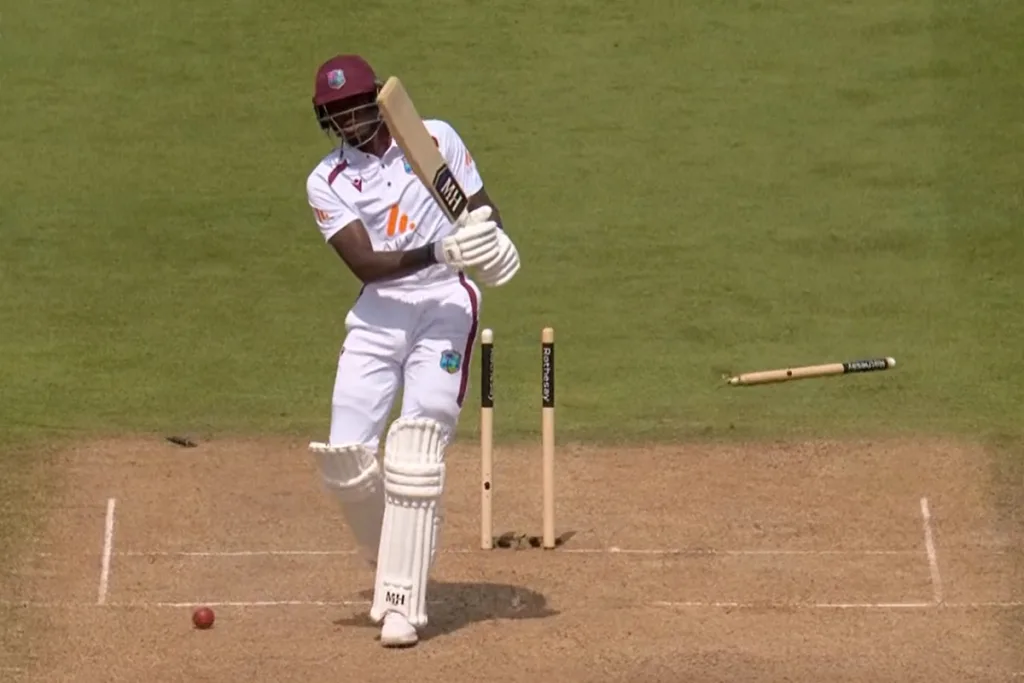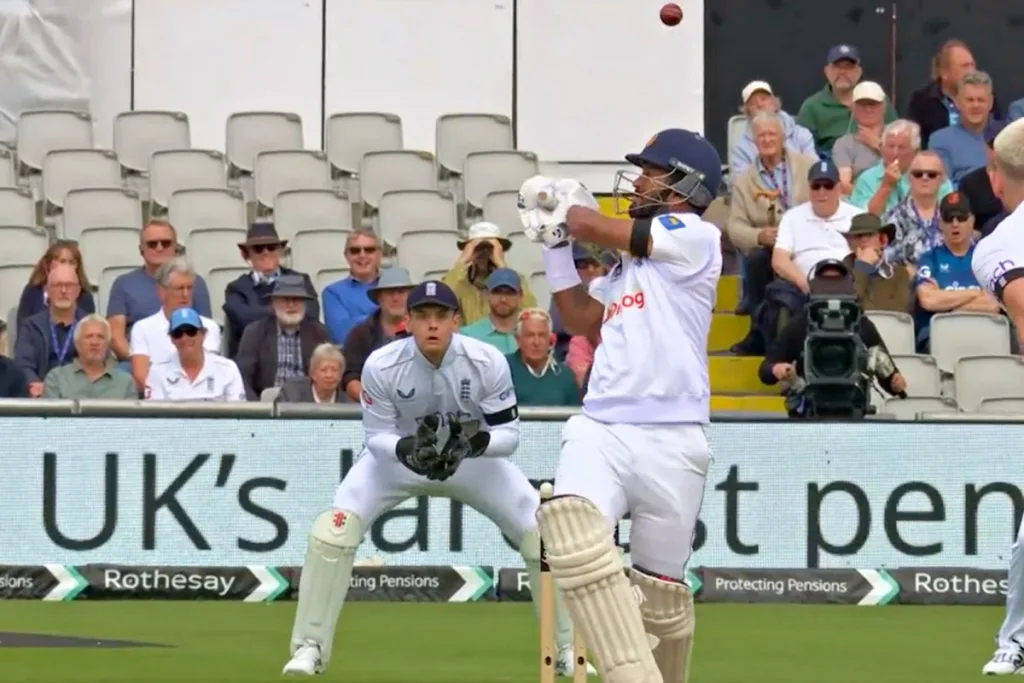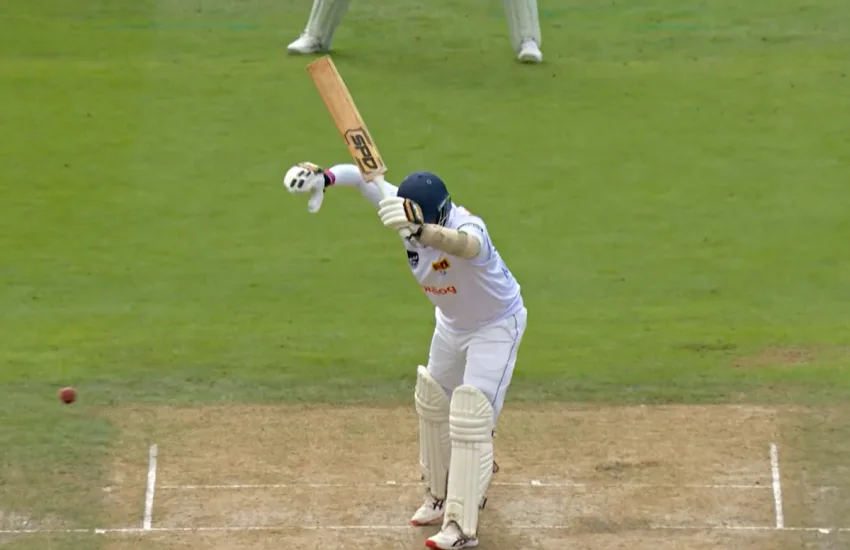Being as it comprises three whole Tests, it’s probably inaccurate to describe this England v Sri Lanka series as ‘short’. After all, this is an era when two Tests inside a fortnight supposedly qualifies as a ‘series’. But while there’s technically a first, second and third Test between these two nations, is the series really three Tests long?
We touched on this earlier in the summer after the West Indies were double-skittled in the first Test of their series.
At the time, we implied that match had essentially functioned as a warm-up, the Windies having only had a three-day game against a County Select XI prior to it. They did indeed seem a bit warmer in the second Test, but when they lost that one as well, the series had gone before it had really begun.
This seems to us to be the recurring logisitical paradox of the modern Test tour:
- The shorter the series, the more important it is to start well
- The shorter the series, the less warm-up cricket there will be
This is not doing anyone any favours – not the tourists, not the home team, and certainly not anyone who wants to follow a decent Test series between them.

Another example was the West Indies’ tour of Australia at the start of the year. On that occasion they had a three-day game against a Cricket Australia XI, got bowled out for 188 and 120 in the first Test, and then came back and won the second Test.
All the resultant lamentations that there wasn’t a third Test rather overlooked the fact there hadn’t really been a first one either. Not really.
And so to Sri Lanka, who entered today’s first Test after one game against England Lions. Luxury of luxuries, that was a four-day game, which meant today wasn’t their first time playing first-class cricket in England since 2016.
It nearly was though. And early on it certainly looked like it was as they slipped to 6-3 and then 40-4.

The usual disclaimers apply of course – don’t judge a pitch until both sides have batted on it and all that – but it’s hard to avoid the feeling that in another world the first morning could have been less awful.
The cliché is that touring teams always want to hit the ground running. The issue is that more often than not, they hit it running backwards. Hitting the ground at a dead standstill would be a more reasonable aspiration.
A counter-argument to all of the above would be a tour like England’s to India in January, where they had zero warm-up games and instead spent 11 days training 1,600 miles away in Abu Dhabi. England won the first Test and lost the other four.
England’s players do however spend a lot of time in India and quite often it’s for Test cricket. However they shaped their immediate preparation on that occasion, there was a certain volume of experience to build on.
There’s no exact recipe for success when it comes to warming up for a Test tour, but being in the country sometimes and playing some cricket there would seem to us to be useful ingredients.
- Follow the rest of Sri Lanka’s tour with us by getting our email
- Have a read about the King Cricket crowdfunder



Comment on the BBC website this morning: ‘Whilst I’m aware it can rain anywhere, surely there has to be an argument to have less Test match cricket at old Trafford because of the weather. It’s not the first time and it won’t be the last people have seen no cricket here while there’s play elsewhere.’
It’s true Sam, for years I’ve seen no cricket at Old Trafford from October to March*, while there’s been play in Australia, New Zealand, South Africa, and even the West Indies. And there have been many days of Tests in London on days when nowhere else in England has had any Test cricket being played at all. This year, London will again easily see more Test cricket being played than Manchester.
All Tests need to be moved to London, or maybe Melbourne, immediately.
*This is HALF OF THE ENTIRE YEAR
57 overs today in Manchester was not a bad outcome compared with the rest of the country.
I was at Merchant Taylor’s School today (admittedly The North Of England compared with London Proper) where we only got 44.4 overs in. I’m not sure we’d have got much more play at Lord’s.
Southampton, which I suppose is more or less in the Southern Ocean) got no play at all. Why the cricket authorities ever allow cricket to be played in such a wet place is a mystery. Someone should write to the BBC about it.
Follow cricket for just a couple of years and we can easily see how you’d start to think Manchester has some completely different climate to the rest of the UK. Unlike any other ground, rain is all some commentators want to talk about whether the players are on the field (when they express surprise) or off the field (which they think is normal).
They were very unlucky in Southampton today. The Met Office suggests they only usually get the same volume of rain as Manchester (Woodford, people), so it’s definitely not one of the wetter parts of the country.
Bonus commentary tip: always refer to “Manchester rain” when it rains in Manchester (or even when it doesn’t – sunny weather actually elicits a very high volume of ‘it always rains in Manchester’ type comments). Never, under any circumstances, refer to “London rain” or “Nottingham rain” or “Birmingham rain” if play is interrupted at one of those venues.
Do all these things frequently enough and you can help keep the notion that Manchester has the same climate as Vancouver Island front and centre in everyone’s minds.
The irony that today looks like being a washout everywhere in the UK south of the Pennines is not wasted on me.
Proof positive that Manchester rain is not proper English rain. Weird…just weird.